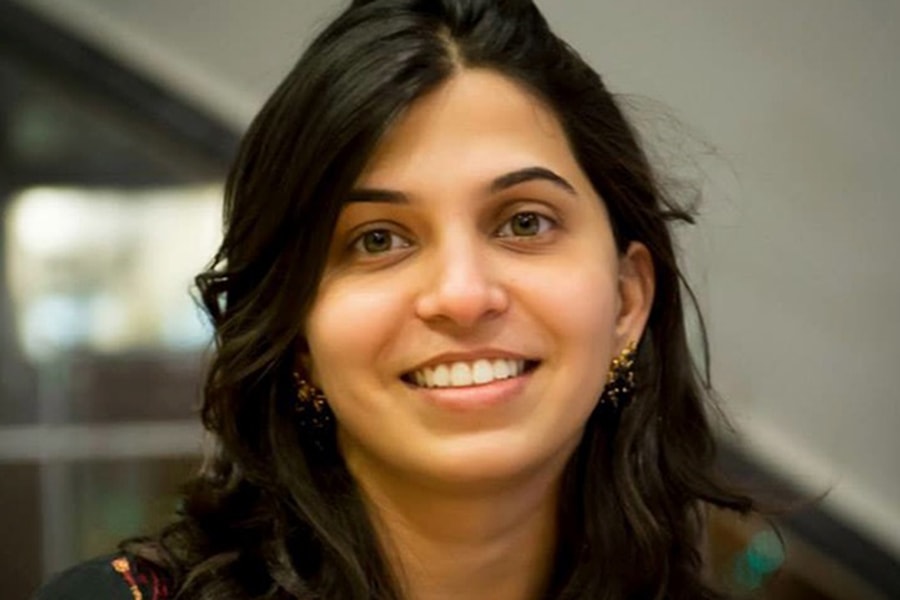
Personal Mention
Gauri Joshi, an assistant professor of electrical and computer engineering, has been named a recipient of a 2018 IBM Faculty Award for her research in distributed machine learning. Faculty Award recipients are nominated by IBM employees in recognition of a specific project that is of significant interest to the company and receive a cash award in support of the selected project. Joshi’s research is about distributing deep learning training algorithms. The data sets used to train neural network models are massive in size, so a single machine is not sufficient to handle the amount of data and the computing required to the analyze that data. Therefore, data sets and computations are typically divided across multiple computing nodes (i.e. computers, machines, or servers), with each node responsible for one part of the data set. In a distributed machine learning system with data sets divided across nodes, researchers use an algorithm called stochastic gradient descent (SGD), which is at the center of Joshi’s research. The algorithm is distributed across the nodes and helps achieve the lowest possible error in the data. It requires exact synchronization, which can lead to delays. “My work is about trying to strike the best balance between the error and the delay in distributed SGD algorithms,” Joshi said. “In particular, this framework fits well with the IBM Watson machine learning platform. I will be working with the IBM Watson Machine Learning vision; I will be working with the IBM Research AI team.” Find out more.
 Andreas Pfenning, assistant professor in the Computational Biology Department, has received an Avenir Award for genetics or epigenetics research from the National Institute of Drug Abuse, which presents the award to early stage investigators who propose highly innovative studies. The award includes a five-year, $1.5 million grant that will sponsor Pfenning's efforts to discover genetic factors associated with the predisposition to addiction. “The development of new treatments for substance use disorders has remained difficult due to the complexity of the neural circuits and the underlying genetic mechanisms,” Pfenning said. Research suggests that regulatory regions of the human genome, particularly regions known as enhancers that increase the likelihood that particular genes are transcribed, are associated with complex brain disorders, such as addiction. His lab will develop a map that links genetic variation associated with substance abuse to neural enhancer function and establish a computational and experimental framework to study any combination of enhancers and genetic variations in different brain regions, cell types and animal models. Find out more.
Andreas Pfenning, assistant professor in the Computational Biology Department, has received an Avenir Award for genetics or epigenetics research from the National Institute of Drug Abuse, which presents the award to early stage investigators who propose highly innovative studies. The award includes a five-year, $1.5 million grant that will sponsor Pfenning's efforts to discover genetic factors associated with the predisposition to addiction. “The development of new treatments for substance use disorders has remained difficult due to the complexity of the neural circuits and the underlying genetic mechanisms,” Pfenning said. Research suggests that regulatory regions of the human genome, particularly regions known as enhancers that increase the likelihood that particular genes are transcribed, are associated with complex brain disorders, such as addiction. His lab will develop a map that links genetic variation associated with substance abuse to neural enhancer function and establish a computational and experimental framework to study any combination of enhancers and genetic variations in different brain regions, cell types and animal models. Find out more.
 Tom Longstaff, a nationally known cybersecurity researcher, has been named chief technology officer at the Software Engineering Institute. As CTO, Longstaff will formulate a technical strategy and lead the funded research program of the institute based on current and predicted future trends in technology, government and industry. Longstaff was most recently a program manager and principal cybersecurity strategist for the Asymmetric Operations Sector of the Johns Hopkins University Applied Physics Laboratory (APL), where he led projects on behalf of the U.S. government, including nuclear command and control, automated incident response, technology transition of cyber R&D, information assurance, intelligence and global information networks. Prior to joining the staff at APL, Longstaff was deputy director for technology for the CERT Division at the Software Engineering Institute. In his 15-year tenure at the SEI CERT Division, he helped create many of the projects and centers that made the program an internationally recognized network security organization.
Tom Longstaff, a nationally known cybersecurity researcher, has been named chief technology officer at the Software Engineering Institute. As CTO, Longstaff will formulate a technical strategy and lead the funded research program of the institute based on current and predicted future trends in technology, government and industry. Longstaff was most recently a program manager and principal cybersecurity strategist for the Asymmetric Operations Sector of the Johns Hopkins University Applied Physics Laboratory (APL), where he led projects on behalf of the U.S. government, including nuclear command and control, automated incident response, technology transition of cyber R&D, information assurance, intelligence and global information networks. Prior to joining the staff at APL, Longstaff was deputy director for technology for the CERT Division at the Software Engineering Institute. In his 15-year tenure at the SEI CERT Division, he helped create many of the projects and centers that made the program an internationally recognized network security organization.
